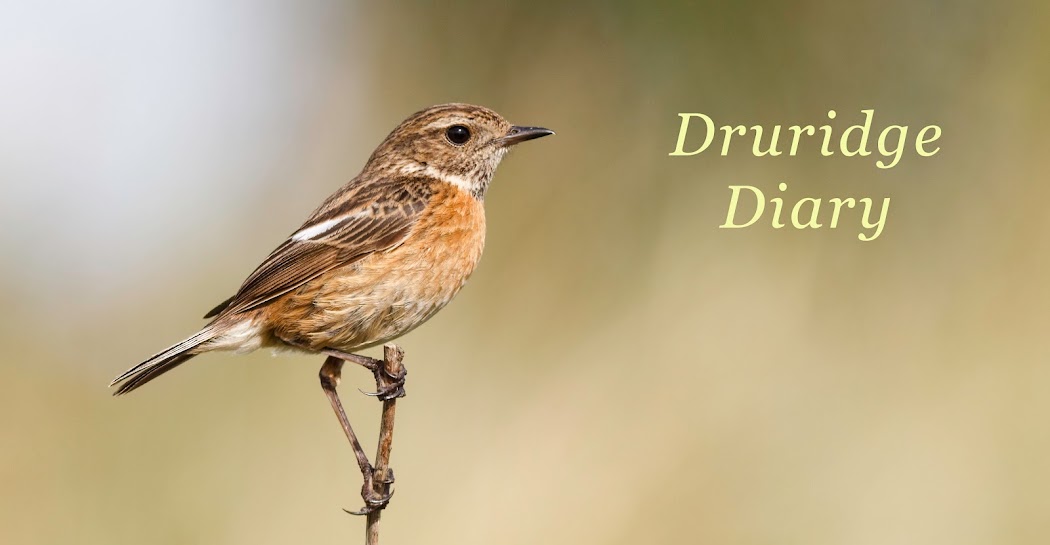Firstly - I wouldn't have normally been at Druridge on a Friday lunchtime. I'd have been at work. A good friend from Malta, Justin Vassallo, was visiting so I took the day off to take him birding. Justin is a legend - he started the first Maltese Raptor Camps in 1999, when he was only 19. I met him in 2001 when I went to my first of four raptor camps. We've been friends ever since.
Secondly - We'd spent the first part of the morning seawatching at Snab Point so wouldn't have ordinarily gone back to look at the sea. We were in the little hide at Druridge when a couple of visiting birders told us they had seen two great northern divers with a single red-throated offshore - A chap had put them onto them. We retrieved the scopes from the car and headed up there. The 'finder' wandered off when we arrived. No sign of the GNDs but there was enough to look at so we stayed a while.
And that's how I happened to be in the right place at the right time.
We counted at least 20 red-throats on the sea, 160 common scoters, large auks, red-breasted mergansers, three scaup, great crested grebes. All good stuff for a Maltese birder. After 30 minutes or so of scanning, I picked up an auk headed north, already north of us - big white wing patches stood out immediately on an otherwise black and white 'motley' auk. Justin was looking south when I called it - Black Guillemot! Despite my best efforts I couldn't get him onto it before it disappeared into a trough and was lost to sight. Given the scaly-dusky-ness of the bird I think it was a first-winter rather than a winter adult.
I suppose 'tystie' is overdue as a patch bird and I shouldn't have been unexpected but it certainly wasn't on my radar for Friday - given reports from elsewhere, great shearwater or white-billed diver would've been more likely. So, a pleasant surprise. Tystie takes my patch list to 253 and the patch list to 272.
We retired to the Drift Café for lunch and a celebratory beer.
 |
| Justin and me - celebrating a few lifers for him and a patch tick for me with a bottle of Curlew Return each |
Elsewhere on the patch, late common darter and migrant hawker dragonflies were on the wing and three mistle thrushes were around the farm. Four barnacle geese were new for the autumn.
 |
| One of many common darters |
 |
| Mistle thrush - not common on the patch |
After the excitement of Friday, Saturday was a bit more mundane.
It was a grey day, no wind, just flat... as was the birding. I decided to have a look on the sea. The sea was flat too. There was steady, northerly, kittiwake passage and three little gulls lingered offshore. A single female scaup came in with a red-breasted merganser and two turnstone flew north. 35 red-throated divers were on the sea, eight flew north and one went south.
 |
| Coal tit in the plantation on Saturday |
Today, Janet and I walked north from the plantation and back by the beach. The bushes were VERY quiet. The three mistle thrushes were still about. On the beach, a single rock pipit feeding on the seaweed north of the Dunbar Burn was a year-tick. Rock pipits are tricky at Druridge so it was welcome.
 |
| Rock pipit |
 |
| Carrion Crow on the beach |
 |
| Razorbill - still a few auks feeding close inshore |
 |
| Ringed plovers from last week |
A sizeable (250+) flock of finches roamed about the dunes, I think 85-90% of them were linnets. No twite yet.

No comments:
Post a Comment